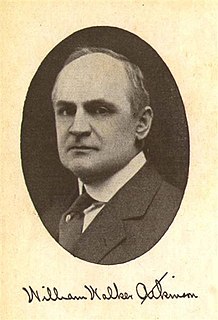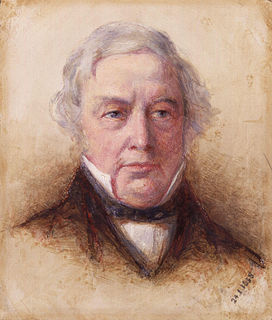A Quote by William Hazlitt
It is a false principle that because we are entirely occupied with ourselves, we must equally occupy the thoughts of others. The contrary inference is the fair one.
Related Quotes
When we actively relate to people as rivals or enemies, we foster the false belief that we and they stand independent of one another. The truth is that we bind ourselves to them as if by an invisible tether, and we do so by our negative thoughts and feelings." "Who we are is who we are with others. How they seem to us is a revelation of ourselves.
We are sending out thoughts of greater or less intensity all the time, and we are reaping the results of such thoughts. Not only do our thought-waves influence ourselves and others, but they have a drawing power - they attract to us the thoughts of others, things, circumstances, people, 'luck', in accord with the character of the thought uppermost in our minds.
Modern man has transformed himself into a commodity; he experiences his life energy as an investment with which he should make the highest profit, considering his position and the situation on the personality market. He is alienated from himself, from his fellow men and from nature. His main aim is profitable exchange of his skills, knowledge, and of himself, his "personality package" with others who are equally intent on a fair and profitable exchange. Life has no goal except the one to move, no principle except the one of fair exchange, no satisfaction except the one to consume.p97.
The British government believes we must be resolved to disarming Saddam Hussein. It must be done before the terror weapons he possesses can be used by Saddam himself or by others with his blessing. We must steel ourselves to the consequences of that resolve and send a clear message to Saddam Hussein: You cannot win. You can only comply and disarm or be defeated. The choice is entirely yours.
The good or evil we confer on others very often, I believe, recoils on ourselves; for as men of a benign disposition enjoy their own acts of beneficence equally with those to whom they are done, so there are scarce any natures so entirely diabolical as to be capable of doing injuries without paying themselves some pangs for the ruin which they bring on their fellow-creatures.




































